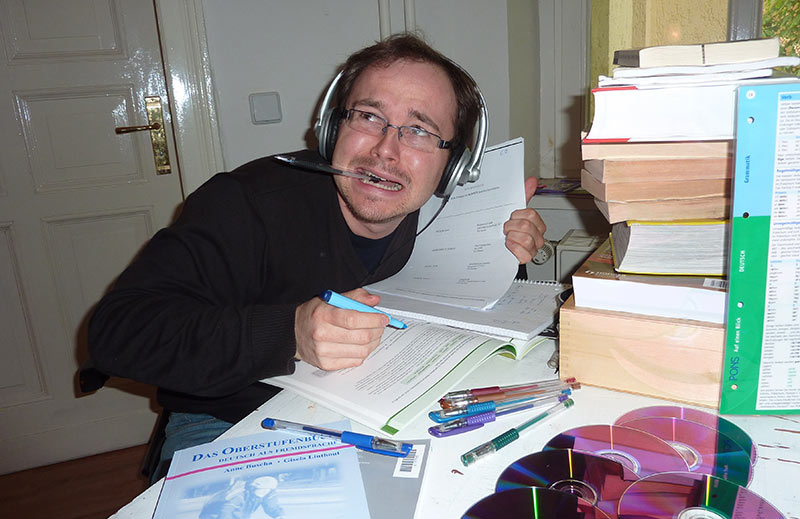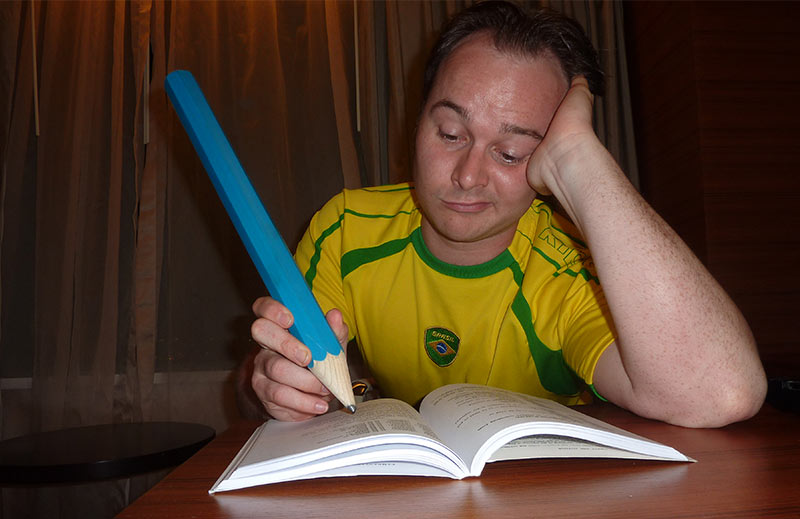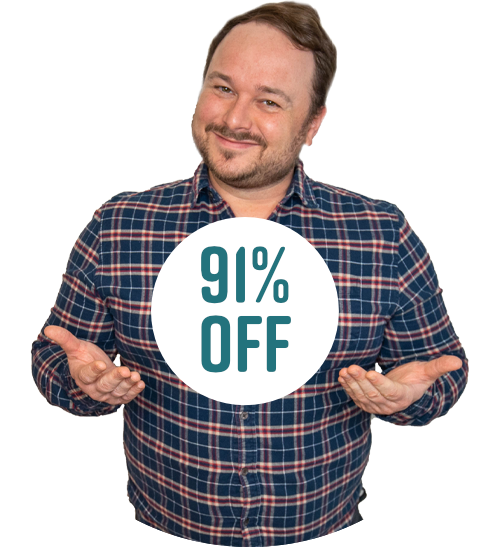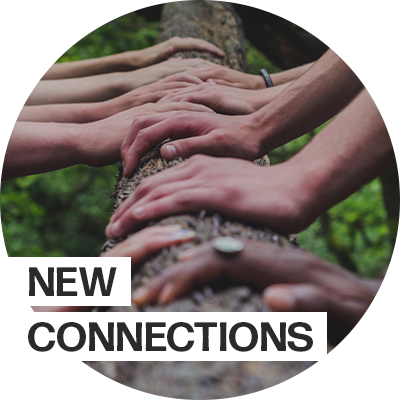Are Textbooks a Waste of Time for Language Learners?
Have you ever dreamed of sitting at a sidewalk cafe in Paris, reading Le Monde, and chatting with the waiter in fluent French? Or maybe you imagine booking an Airbnb stay at a Rio de Janeiro favela, and you’re the centre of attention as you converse with the locals.
The idea of starting a language learning project can be exciting. Visions of yourself speaking fluently in a far-off land are a brilliant inspiration to start learning a language.
What do you do when the language bug bites? Like so many others, do you head to your local bookstore (or Amazon), and pick up a textbook in your target language? I don’t blame you if you do. After all, if textbooks are used by every language study class in the world to teach a language, they’re good enough for you, right?
Unfortunately, by following the crowd, you’re probably heading away from your dream. Let’s look at why that is…

Why Do You Want to Learn a Language?
Do you want to read a newspaper in your target language? Watch movies? Be a grammar geek?
Your goal in studying the language determines the best method for your study. For most people, the real goal is to talk fluently with native speakers.
But what does it meant to communicate? And how can you build up that particular skill in the most effective way?
Communication is a combination of three main skills:
- Speaking: output of the language
- Listening: input of the language
- Understanding: processing the language
When you build your skills in those three areas, then you are building your ability to communicate in a language. Let’s look at each one and see why a textbook isn’t your best option.
Speaking a Language: The Holy Grail of Language Learners
Most of us equate fluency with being able to speak the language really well.
And the most effective way to build your speaking skill is to open up your mouth and speak the language!
I’m friends with lots of other polyglots, and almost all of them would say the same thing. That’s why speaking a new language is the focus of my “Speak from Day 1” approach to language learning.
Most textbooks don’t help you do that.
You might think that reading through a selection of dialogues will help you figure out how to say the right things. Alas, that’s not how it works. Using a language in real-world situations is never the same as reading a book. The skills you build through using a language are much more valuable than a dozen academic textbooks.
If you were going to build a skill as a runner, would you spend all your time reading Runner’s Digest magazine, or watching marathons on TV? Of course not. You would get out on the road and pound pavement. It’s the only way to learn to run, and speaking is the only way to learn to speak.
Listening to a Language: Making Sense of Native Speech
When you hear a native speaker in a new language for the first time, you might be surprised at how damn fast they speak. You’ll probably find that you understand very little of what they’re saying.
This is one of the main challenges to new language learners. And it can’t be overcome just by studying a textbook. At risk of stating the obvious you can read a book, but you can’t listen to it.
What about textbooks that come with supplementary audio recordings of dialogues from native speakers? Well, the problem with these is the speed of which the language is spoken. It’s much slower than what you encounter in real life. On top of that, the dialogues are rarely the type of speech you hear in day-to-day interactions.
If you want listening practice, then put away the audio files, and start listening to your target language in the real world. I’ve written about ways to improve your listening skills, and also provided hundreds of listening resources for Spanish, French, and English to get you started.
Understanding a Language: What Does it All Mean?
To understand a new language, you need to be able to make sense of its words and grammar.
Many textbooks start you off with a strong emphasis on grammar, giving you lists of verb conjugations or explaining different tenses.
The truth is, you don’t need this level of detail when you first start a new language. Wrapping your head around grammar when you can’t even ask for the location of the bathroom is like is like trying to bake a perfect souffle when you just want to make a snack in the kitchen. It’s too much too soon.
Wait to study grammar until you are comfortable enough in the language for grammar to actually be interesting. When you become conversational learning the rules of grammar will make more sense. You find yourself wanting to know more, rather than feeling overwhelmed.
Since textbooks often try to cover many bases (vocabulary, grammar, dialogue, etc.) they often don’t provide a focused overview of grammar. When you’re ready, pick up a dedicated grammar book in your target language. It is more likely to provide the insights you need.

The Only Time Buying a Language Textbook is a Good Idea
There are two situations in which I think it is okay to buy a language textbook:
- When you have to. If you are in a study programme at your school and you need to take a language course which requires a textbook, then you should get the textbook.
- When the textbook focuses on supporting you in speaking the language in real world situations.
In any other situation, textbooks (especially academic textbooks) are best avoided.
Focus On The Reason You Want to Study the Language
It feels good to go out and buy a textbook – especially a bulky academic one. You feel like you’re taking action. In reality, buying a textbook is often a placebo that just makes you feel like you’re taking action.
Fast forward three months and chances are the textbook will be sitting on your bookshelf collecting dust. That’s a painful reminder of the first week when you furiously tore into the material only to lose motivation and momentum a few days later.
Unless the textbook supports you in speaking a language, leave it in the bookstore. Instead, focus on speaking the language. You can (and should) do this right from the start.









Social